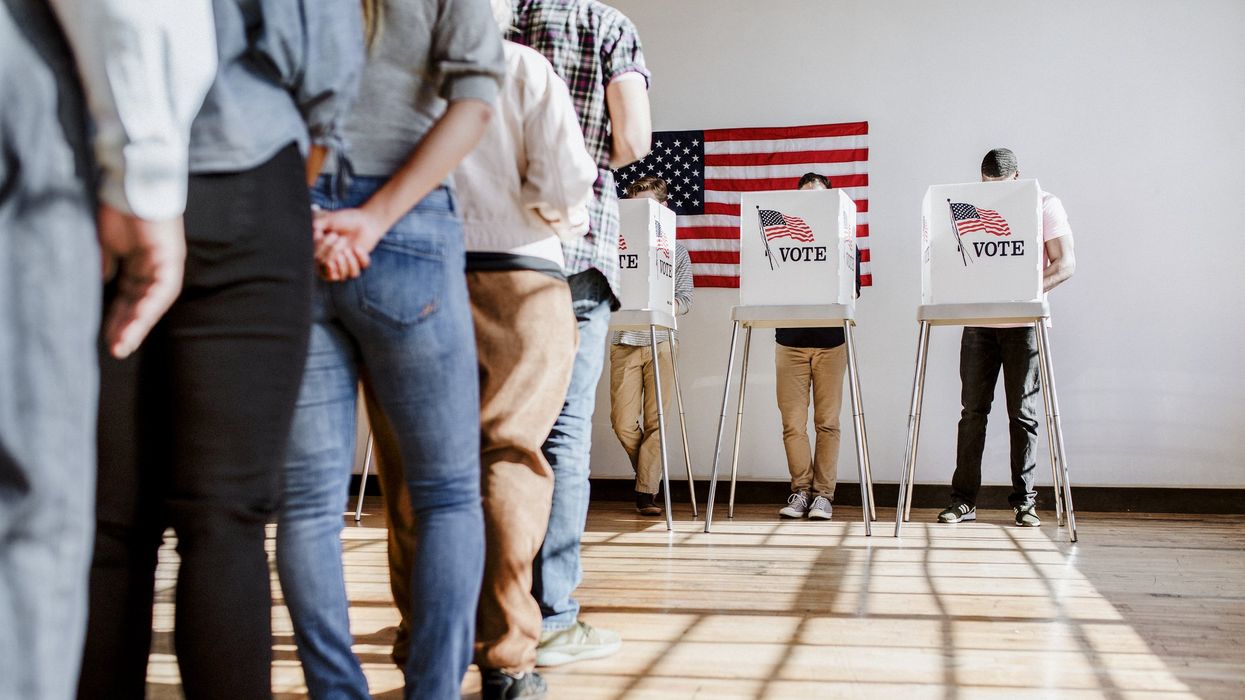January 20 marked the 26 th time in U.S. history that the ultimate position of power in the country transferred from one party to another. This is an awesome and unparalleled track record. The peaceful transfer of power could well be America’s greatest innovation, fundamental to our liberty and our prosperity.
But this time, power passed to a man who tried to sabotage the 2020 elections and then pardoned the massive assault on January 6th. On his first day in office, Trump paid homage to the denial of the rule of law, the essential element to the peaceful transfer of power.
It should not need saying, but the verdict of the 2020 election is absolutely clear. 63 out of 64 court challenges, along with recounts in every battleground state, all confirmed the legal certainty: Trump lost.
Insistence to the contrary projects dangerous disrespect for the law. JD Vance told the New York Times, “I think the entire post-2020 thing would have gone a lot better if there had actually been an effort to provide alternative slates of electors and to force us to have that debate… You can’t litigate these things judicially; you have to litigate them politically.” (Emphasis added.)
“Litigate politically” is an invitation to mob rule and massive disenfranchisement. As January 6, 2021, made clear, no gentlemanly debate ensues when who won an election is stripped of its legal grounding.
The continued insistence that 2020 was stolen puts our election system under clouds of unjustified suspicion, sows discord in hundreds of communities and falsely mobilizes well-meaning citizens against a nonexistent threat. The precedent for unmitigated refusal has now been set, for the Republican Party at least, and that puts in doubt the peaceful transfer of power the next time a presidential election is close and contested.
What do we do about this now? We can start by recognizing that our election rules already involve many dangerous elements of “litigating politically” that make us a complete outlier compared with other democracies, and that must be changed.
One example is the certification of results, which in every state relies on individuals with a direct political interest in the outcome, such as secretaries of state, governors, or party-nominated canvass board members. What used to be a proforma ritual is now a target of political hijacking. In seven Colorado counties this year, Republican canvass board members voted against certifying results to score points against the secretary of state, a likely candidate for governor.
Refusal to certify happened in six states in 2020 and five in 2022.
A study of certification internationally released in 2022 found that none of the 12 peer democracies studied involved partisans in finalizing election results. Instead, these countries give courts the job of judging elections. In a disputed election, no institution is better suited to weigh evidence and render judgment.
The US is also unique in using partisan elections to choose top election officials in most states, an approach that creates at least the appearance that officials will favor their party. Every other democracy has figured out how to put neutral professionals in charge of elections; we can, too, and good ideas are already in place for doing so.
The time is right for a whole new approach to the governance of elections in America. We have a system dominated by the two parties when most voters no longer affiliate with either. We have a structure that relies on political insiders putting “country before party” when the prevailing ethos has become “to the victor belong the spoils.”
The good news is that voters from all sides strongly support less partisanship in managing elections. A 2022 MIT survey found that more than 70% of Republicans and Democrats support “only selecting election officials on a nonpartisan basis.”
Backed with this kind of bipartisan support, governance initiatives can provide a new focus for reform, rebuilding fairness and trust in elections, and fortifying the rule of law. States like Michigan and Minnesota have already passed laws that prevent potential abuse by canvass boards in the certification process, and others should follow suit.
State laboratories of democracy can explore more politically neutral ways to select chief election officers and state supreme court justices. Governance reform should also end manipulative partisan control of state ballot measures.
These efforts should take guidance from the recently celebrated life of President Carter, whose career began with a battle against ballot-stuffing Democratic party bosses in Jim Crow, Georgia. This is a reminder that the potential for abuse exists in whoever has power, from whatever party. Reform efforts must be anchored in that reality.
And it is important to acknowledge that the Harris and Biden campaigns failed in their strategy of making the 2024 election a referendum on Trump’s handling of 2020. But that fact does nothing to change our need for a system of the rule of law in elections that is protected from political manipulation. The peaceful transfer of power, so important to all Americans, now depends on it.
Kevin Johnson is the executive director of the Election Reformers Network, a national nonpartisan organization advancing common-sense reforms to protect elections from polarization.




















Trump & Hegseth gave Mark Kelly a huge 2028 gift